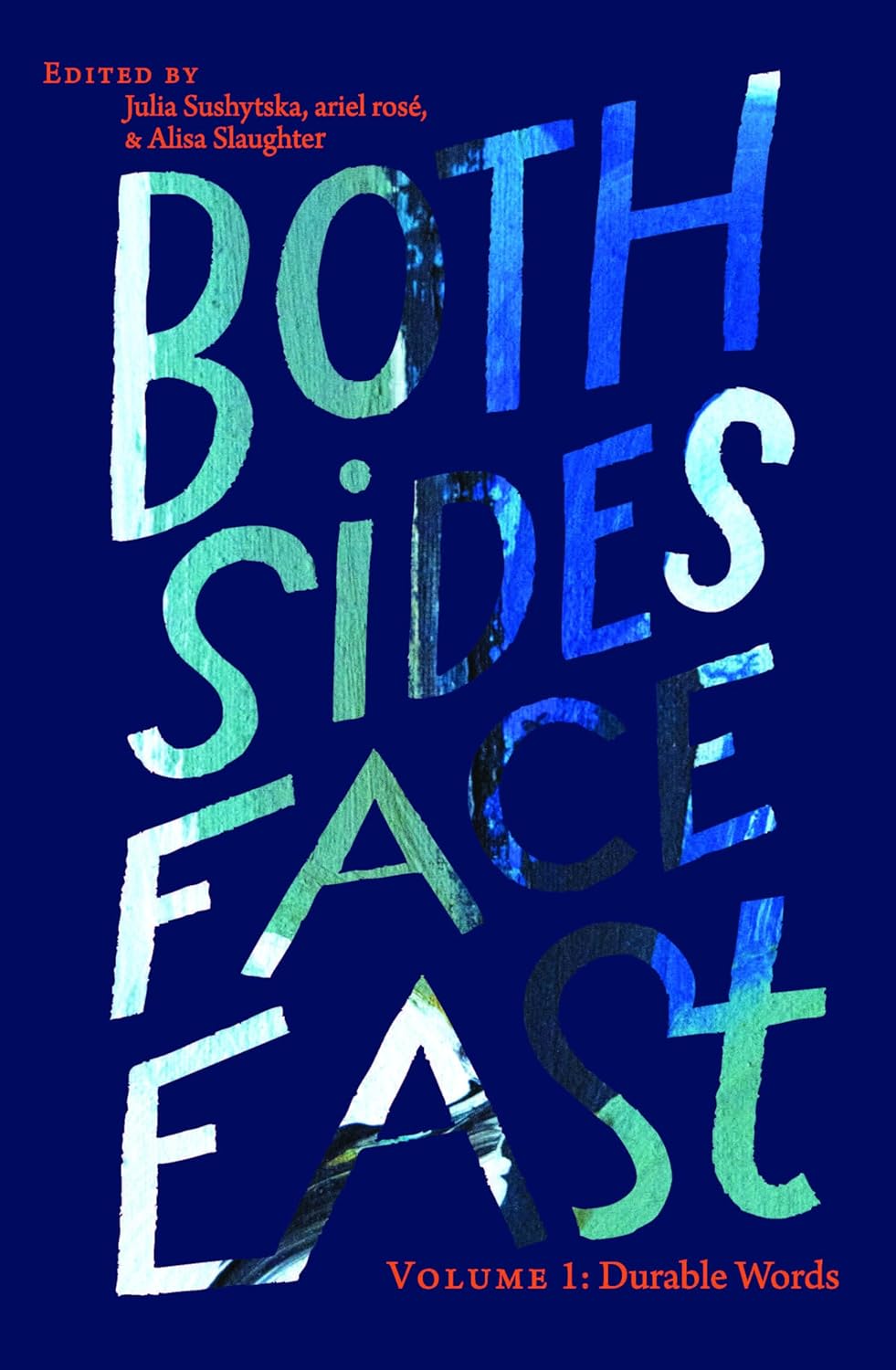Both Sides Face East. Volume 1 Durable Words

Edited by Julia Sushytska, Alisa Slaughter and ariel rosé
A Ukrainian journalist ends each day “scorched by another person’s grief.” A schoolgirl in Croatia cherishes her Barbie and learns to dread air raid sirens more than her geography homework. A poet imagines the spiritual life of a fish who escapes the hook. An exiled artist recreates her homeland in the shape of a bird. The writers assembled in this volume dream and document and remember, they translate one another’s work and meditate on fragility and resilience in the face of nihilism and obliteration. The collection gathers poems, essays, and stories written and translated in nine languages, reflecting an ongoing effort to communicate and understand across cultures. Both Sides Face East – Durable Words began as a response to the invasion of Ukraine, but stakes a wider claim on behalf of human value and integrity.
“I have read Both Sides Face East. Volume 1: Durable Words with a great deal of care, for if any book published at this moment in the USA warrants our attention—it is this one. Why? Because we learn here how to live in the time of crisis, how to breathe in the time of crisis. This incredible collection of many talented voices offers a multi-vocal, multilingual model of conversation, moving between the language of trauma and the language of tenderness. These talented voices speaking in a time of brutal war teach us how to make a shared language of understanding from many scattered dictionaries. My special gratitude goes to the editors and translators of this work.”
— Ilya Kaminsky
“Durable words is an interesting syntagm. We mostly don't think of them, assume words are not durable, and use them carelessly. We also tend to believe all words are good as a means of communication, as poetry. But there are also bad words that anticipate bad acts—generally called political propaganda—words that prepare people to kill. It is then correct to say that words even have the power to do harm to people by starting wars. This book shows us both. It teaches us how hard it is to find words for the indescribable, for the pain, destruction, and loss that war brings. Yet, this is what words must do: describe it and witness in order to become durable, to last.”
—Slavenka Drakulic, the author of How We Survived Communism and Even Laughed
"’Writing cannot redeem the physical territory from tanks,’ writes Uilleam Blacker in his foreword, ‘but texts can act on the geography of the imagination...turning ravaged and abandoned space into a loved, protected place.’ Many remarkable anthologies have emerged from this terrible war and Both Sides Face East is one of the best. The editors have presented an array of new voices alongside familiar ones in a polyphony of languages. Ecumenical, multi-lingual, and thoughtful, deeply thoughtful, the pieces collected here are sure to provoke, educate, disturb, and enlighten.
—Askold Melnyczuk, author of The Man Who Would Not Bow.